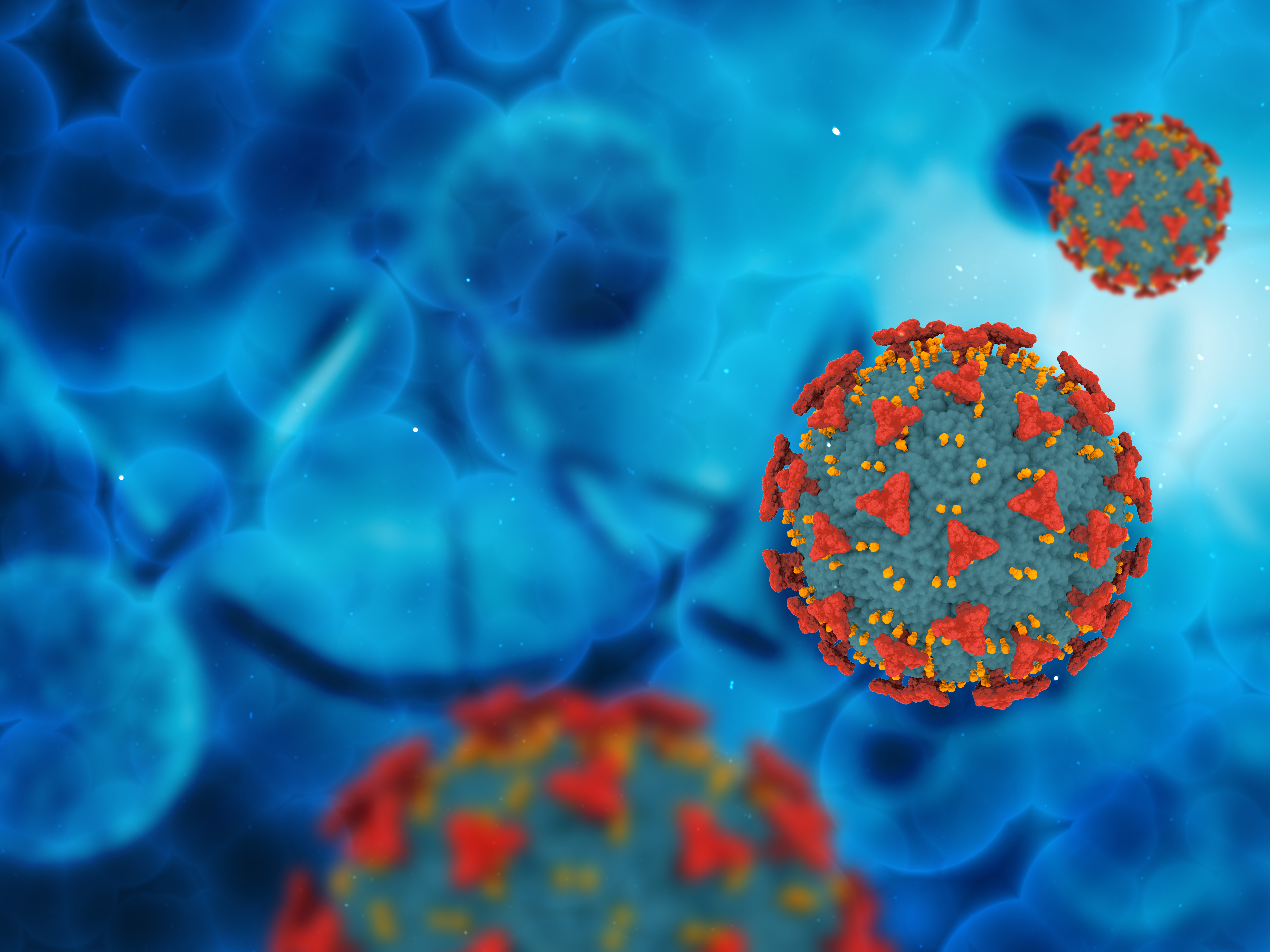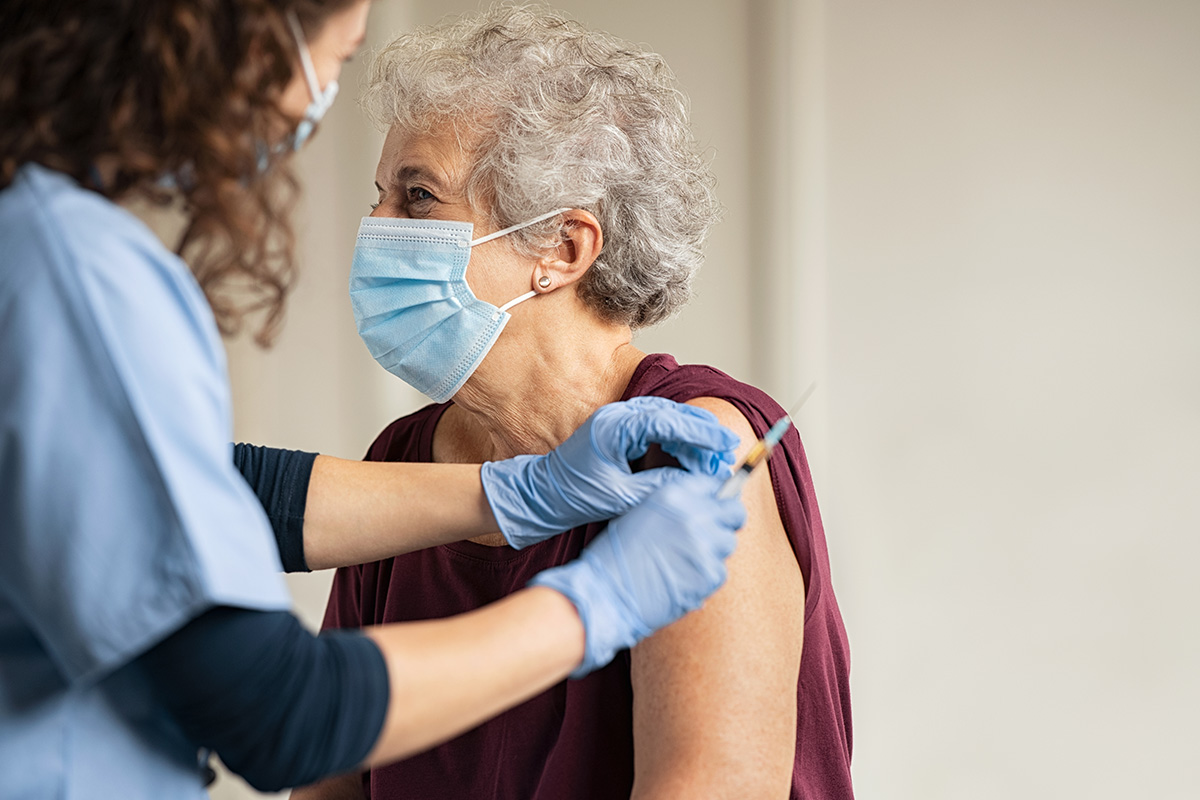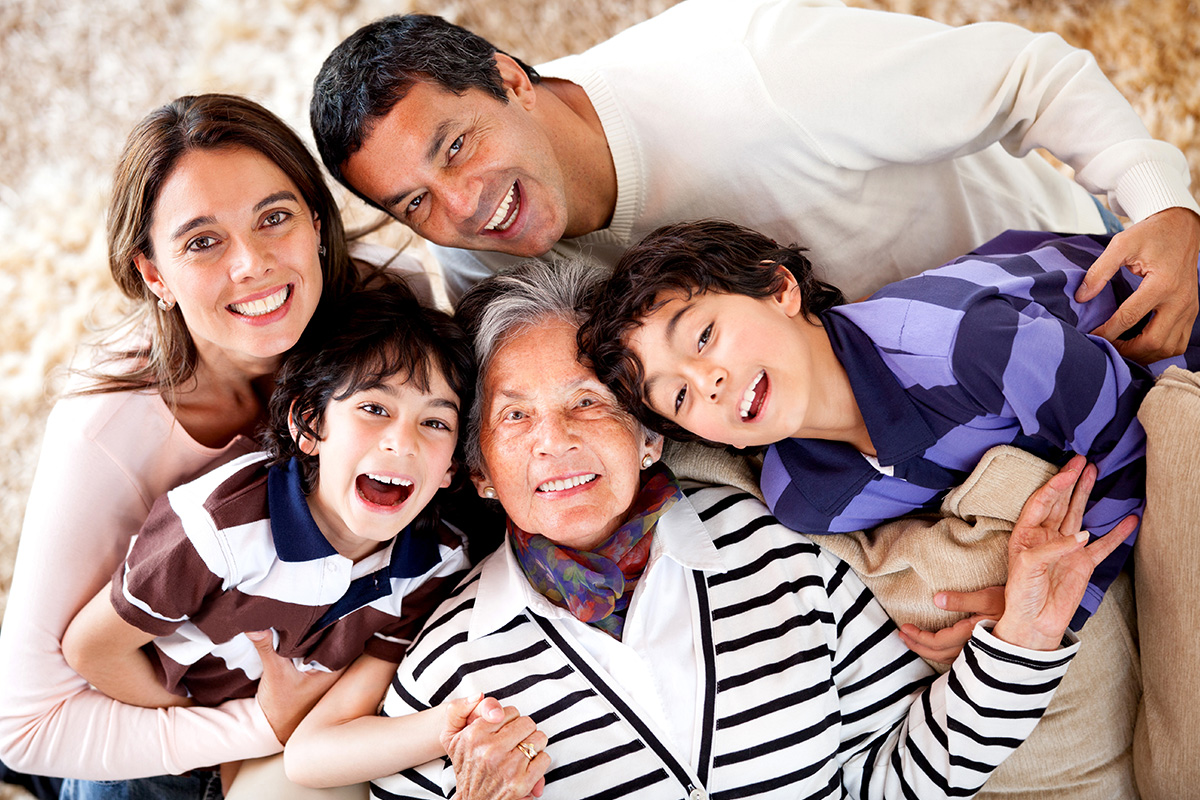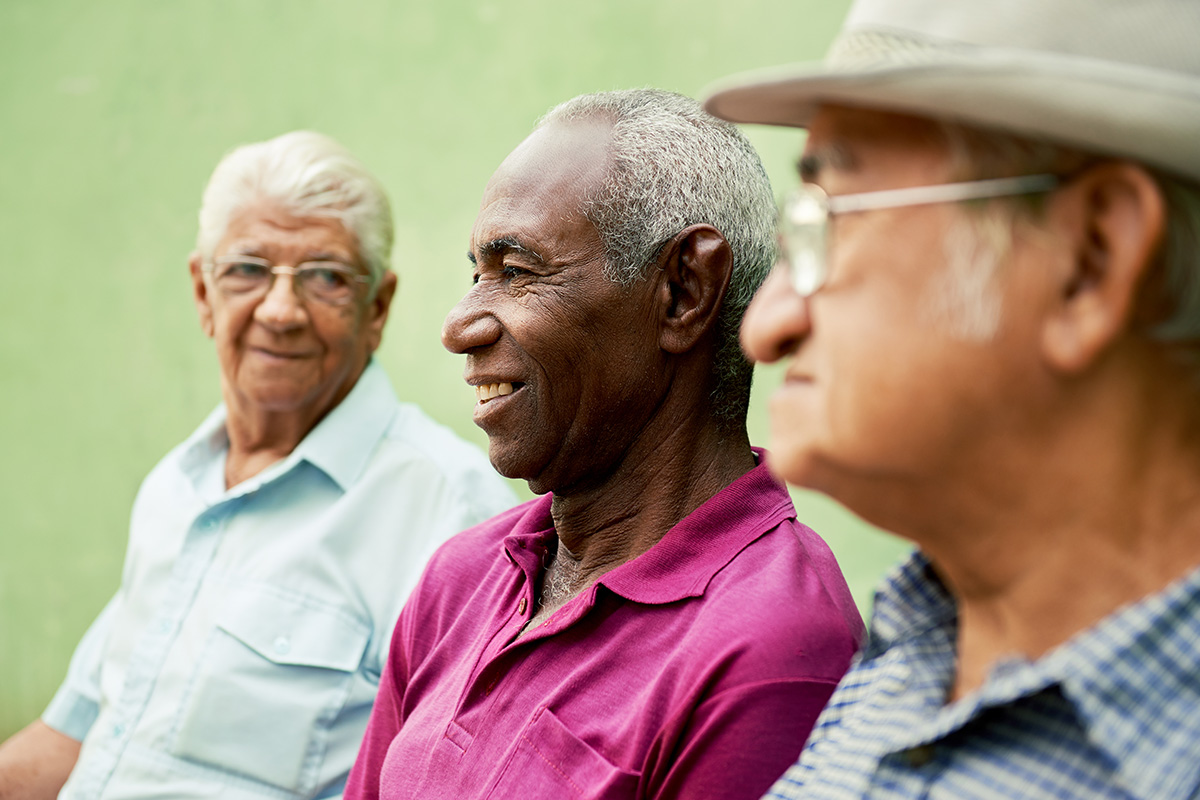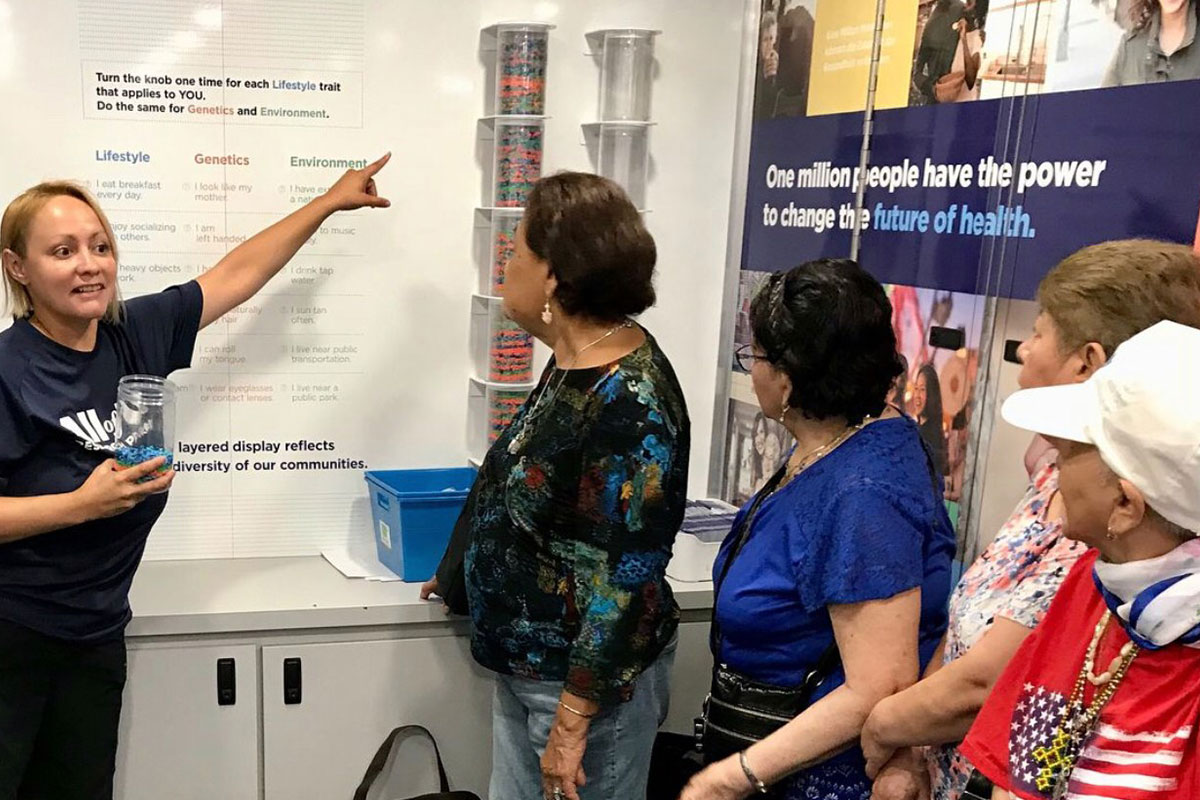Programs
NHCOA is serving as a trusted source of timely COVID-19 information, and we make this information available in English, Spanish and Portuguese through our social media platforms. We are actively developing bilingual blogs, flyers, and infographics about COVID-19, its prevention and the vaccines. During the pandemic, NHCOA has been offering older adults nutritional support services and housing financial support. NHCOA has also been educating legislators about the issues important to older adults and their caregivers during this pandemic. As a part of our educational work, NHCOA has hosted a series of virtual Tele-town halls – these continue to be offered as a way to inform, engage and empower communities during COVID-19. Please check our social media to learn when our next virtual event will take place.
Another element of our multi-media awareness campaign is our Cafecito con NHCOA or virtual coffee hour series. These are virtual conversations that allow NHCOA staff and guests to talk about current issues with the communities we serve, including addressing myths about COVID-19, ageism, and racism. These online conversations specifically target promotores de salud (community health workers), caregivers and other grassroot leaders. They are hosted via Facebook and occur once a month. The virtual chats are conducted in Spanish. In addition to our educational work, NHCOA is collecting data on knowledge, attitudes, beliefs and behaviors surrounding COVID-19 and the COVID-19 vaccines. To that end, NHCOA is hosting a series of focus groups with Latinos to better understand these things. We are also launching a short survey to accompany these focus groups. It is our hope that the knowledge gained from this study will allow us, and others, to make better targeted educational campaigns to keep our communities safe and healthy. Please email nhcoa@nhcoa.org if you are interested in participating in our focus groups.
NHCOA is working to close the gap on adult immunizations among Hispanic older adults, their families, and caregivers. Our work focuses on using culturally and linguistically competent outreach and communications activities to engage Hispanic communities on the issue of adult vaccination to prevent diseases across the nation. We take a national approach to advocating for policy changes that make it easier for older adults to access vaccines. Our efforts include an educational awareness campaign, that specifically aims to educate Latino older adults about the importance of adult vaccines. We engage in this educational campaign via Spanish radios, opinion editorials in Spanish newspapers and on our social media platforms, including Facebook™, Twitter™, and Instagram ™, NHCOA’s Blog and its e-newsletter
Partnering and Communicating Together to Act Against AIDS (PACT)
This program provides HIV/AIDS education and prevention efforts within Hispanic community, particularly, Hispanic older adults, their families and caregivers. It is known that HIV/AIDS impacts Hispanics and other diverse communities disproportionately. However, one segment of the population that is often overlooked or neglected when conducting HIV awareness campaigns are Hispanic older adults and their caregivers.
Moreover, in recent years we have experienced an increase in HIV/AIDS infections among the Latino aging population, and older adults in general. Through funding by the Centers for Disease Control and Prevention (CDC) NHCOA works with other organizations to disseminate messages and resources from CDC’s Let’s Stop HIV Together campaign to Hispanic older adults, their families and caregivers that are impacted by HIV, raising awareness about this important issue.
Vacunémonos (Let’s Get Vaccinated)
This is a culturally, linguistically, and age sensitive community intervention that aims at increasing adult vaccination rates among Hispanics. Let’s Get Vaccinated is a proven community-based intervention that effectively closes the gap in adult vaccinations among Hispanic older adults and the mainstream population through targeted community outreach and education.
The Vacunémonos program successfully reaches Latino older adults, their families and caregivers through a two-pronged approach that combines one-on-one outreach through the deployment of promotores de salud (community health workers) and a locally focused bilingual communications campaign built around the messages of the importance of adult vaccination.
Leaves that Pay
NHCOA’s Leaves that Pay program integrates culturally and linguistically appropriate materials to enhance existing national communication, education, and outreach strategies in paid leave at the national level and local levels. Paid leave allows employees to continue receiving income while away from work for an extended period so she/he can recover from a serious health issue, take care of a seriously ill family member, or bond with a new child.
Our work is instrumental in educating and engaging Hispanic communities about paid leave, which is especially crucial for Latino working families for several reasons: 1) Hispanics are a growing segment of the U.S. population and the U.S. workforce, 2) many Hispanic workers occupy low-level jobs that lack paid leave, 3) Hispanics are less likely to take time off for illness or injury pointing to a higher level of presenteeism among Hispanic workers, and 4) the Hispanic population has a larger percentage of family caregivers.
Salud y Bienestar (Health and Well-Being)
This is NHCOA’s national flagship program that educates and informs Hispanic older adults, their families, and caregivers on how to prevent and/or manage diabetes and its complications. Originally funded by the Centers for Disease Control and Prevention (CDC), Salud y Bienestar has helped thousands of Latino older adults and families over the last several years make healthier lifestyle changes.
Reframing Aging
NHCOA continues its work in reframing aging, through its Thought Leaders Roundtables. According to the Status of Hispanic Older Adults, a report developed by NHCOA, most older adults in the Unites States live independently, healthy and socially productive. The same is true in much of Latin America (Mexico, Central America, South America and the Caribbean). This reality contrasts with the negative perception, supported most of the time by the media, the entertainment, beauty industry, and the public that becoming “older” is synonymous with deterioration, dependence and/or incompetence.
The FrameWorks Institute report, An Empirical Approach to Reframing Aging and Ageism, indicates that experts from the aging field and the public have a different view of ageism. For example, experts from the aging field view ageing as a new opportunity for growth, contributions, and view older adults as independent and healthy. However, the public views ageing as the opposite, which must be resisted. Unfortunately, many people associate aging with decline, disease or even as a disability. Additionally, the term aging and its misconceptions can be a barrier to better practices and policies for older adults. This data was collected in the U.S. and so we are not sure how applicable it is to Latin America and cross-cultural views on aging.
The program aims to change the perception of how some people view aging. We are conducting a series of roundtables, reaching more than 100 health professionals in the field of aging and academia to create culturally and linguistically appropriate materials and vocabulary for referring to older adults.
All of Us Research
Hispanic older adults are the fastest growing segment of the U.S. However, according to the Director of the National Institute on Minority Health and Health Disparities, less than 8% of clinical trial enrollees are Hispanic. Meaning Hispanics have less access to experimental cutting-edge treatments and researchers have less data on how a drug or treatment works in Latino populations. The lack of representation is an endemic problem in U.S. clinical trials and health research!
The All of Us Research Program is inviting one million people across the U.S. to help build one of the most diverse health databases in history. The program welcomes participants from all backgrounds. People who join will share information about their health, habits, and what it’s like where they live. Researchers will use the data to learn how our biology, lifestyle, and environment affect health. This could help them develop better treatments and ways to prevent different diseases.
Our primary objectives are to educate, motivate and facilitate Hispanic enrollment in the All of Us Research Program. Our main outcomes include engaging Hispanics to 1) demonstrate a willingness to participate in research, 2) awareness and education about the All of Us Research Program, and 3) overall knowledge of precision medicine and its benefits.
Nutrition
At NHCOA, we believe that healthy aging is not only about living longer, but about living better. Based on evolving data, it is becoming increasingly clear that the COVID-19 pandemic is dramatically impacting Latino communities. The most vulnerable among us, including isolated seniors, immigrant communities, Latino families, and single-parent households, those currently living paycheck to paycheck, facing food insecurity, and small Latino owned businesses were heavily hit by the pandemic.
The disparate impact COVID-19 has had on these groups further highlights the existing health inequities that are borne out of systematic and structural racism that has existed for centuries in the United States. These systemic and structural inequities result in financial insecurity; substandard housing; poverty that does not allow for financial planning for emergencies; jobs that cannot be done remotely, do not offer health insurance or paid leave; and potentially limited access to healthcare.
As part of the Nutrition Program, we have partnered with Herbalife Nutrition, and we have been able to serve older adults living at Casa Iris Housing facility at Washington, DC, and its vicinity. The program has effectively provided nutritional education, awareness, nutritional supplements, and activities to older adults at Casa Iris. As a result, this partnership has created an opportunity for the older adults to eat healthy and maintain a healthy lifestyle. With closures and physical distancing guidelines aimed at limiting the spread of COVID-19 extend across the country, the need to provide nutrition services, delivered at home, is critical important.
NHCOA offers nutritional support that is culturally appropriate and supports the health of older adults. We provide access to healthy nutrition, as well as nutrition education and fitness programs, to encourage healthy aging. We are partnering with the D.C. Office on Latino Affairs to serve fresh fruits and vegetable. In partnership with the Consulate of Guatemala, we offer hot meals that are culturally appropriate. We also distribute groceries to older adults and their caregivers including vegetables, fruits, and canned fruits, among others.
NHCOA is committed to improving the health status of Hispanic older adults, their families, and caregivers. Achieving and maintaining excellent health should be a top priority at any age. Lack of meaningful access to quality health care also contributes to poor health outcomes for Hispanic older adults. In keeping our commitment with older adult’s health, we continue to support and advocate for policies regarding nutrition, including during our Capitol Hill Briefings, speaking with policy makers, and making our voices heard to key policy makers.
Health Literacy
NHCOA continues to train promotores de salud through its Portal e-Comunidad. It was developed to provide promotores de salud with easy-to-use and accessible learning platform to learn about and promote health literacy among Latino seniors in their communities. There are currently five modules of 20-40 minute lessons on narrated PowerPoint presentations. In this beta version, topics covered include managing medications at home and how to get the most out of a doctor’s visit. Each module includes a pre- and post-test, as well as additional materials. Also at the end of each module the promotor/a receives a personalized certificate of completion.

